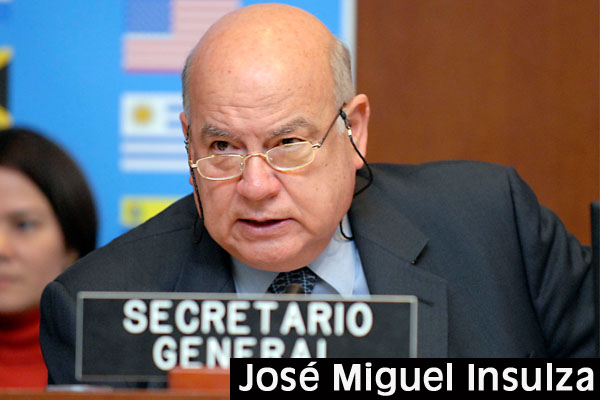Belize “completely” rejects Guatemala proposals for referendum delay; GOB stands on Special Agreement signed in December 2008
Belize’s Ministry of Foreign Affairs announced this afternoon via press release that it has rejected Guatemala’s proposals to delay the October 6, 2013 referendum which would give voters in both Belize and Guatemala the option to say whether they want the International Court of Justice (ICJ) to settle the territorial differendum between the countries.
Guatemala has requested a delay, citing changes Belize made to its Referendum Act which require 60% of the voting population to participate before the results of the referendum could be declared valid.
Cabinet Secretary Carlos Perdomo told Amandala that the statement from the Ministry of Foreign Affairs was issued after Cabinet took its position today. That position is that the Government of Belize “completely” rejects those proposals, and it stands on the Special Agreement signed in December 2008, to take the issue to the ICJ, pending voter approval.
“Let’s stick to that,” Perdomo conveyed.
The Guatemala Government wants Belize to change its Referendum Act so that it will be identical to theirs, meaning that a simple majority vote would validate the referendum, without the need to reach a 60% threshold of voter participation.
If Belize changes its law, Guatemala indicated, it would then be prepared to agree on another date when we could hold simultaneous referenda. However, they were not prepared to give a timeline.
Proposal #2 suggested that Belize could go ahead on October 6, 2013 with its referendum, and then Guatemala would proceed with its referendum if the Belize referendum yields a “yes” vote. In this event, Guatemala proposed to hold its referendum at a date not later than the end of June 2014.
In the statement issued today, the Ministry of Foreign Affairs said, “The Government of Belize, having had occasion to review the proposals by the Republic of Guatemala as presented in writing on 17th March 2013 to Secretary General of the Organization of American States, Jose Miguel Insulza, for the parties to consider postponement of the referenda for an indefinite period or for Belize to proceed on its own to hold a referendum on the agreed date, has decided to reject the Guatemalan proposals in their entirety.”
Minister of Foreign Affairs Wilfred Elrington presented Guatemala’s proposals to Cabinet, as well as the various scenarios for consideration, and advised on the way forward.
Belize notes that “tremendous efforts over many years and through successive administrations have been spent in finding a negotiated solution that would bring to a definitive end Guatemala’s unfounded claim to Belize, and that the failure of these attempts is what led to the signing of the Special Agreement by Belize, Guatemala and the OAS on 8th December 2008. That Special Agreement provides for referenda to be held in Belize and in Guatemala simultaneously on the date of 6th October 2013…”
Belize takes the view that, “Any changes in the Special Agreement or the agreed dates of the referenda must therefore be jointly agreed upon.”
The Foreign Affairs Ministry said that Belize is proceeding today, Tuesday, to write OAS Secretary General Insulza to inform him that Belize rejects the proposals by Guatemala and to confirm Belize’s continued commitment to abide by the Special Agreement of December 2008, including the holding of simultaneous referenda as agreed on 6th October 2013.
Perdomo told us that the government also disagrees with Guatemala’s call to change the Referendum Act to remove the 60% threshold.
A week ago, Guatemala’s president, Otto Perez Molina, told journalists in Guatemala that his administration would not make a unilateral decision, but seek to find common ground with Belize and the OAS on the issues surrounding the planned referendum.

